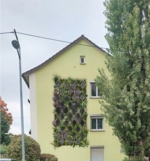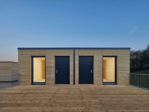-
-
-
Press release - 25/04/2023
Roboticists at the Max Planck Institute for Intelligent Systems in Stuttgart have developed a jellyfish-inspired underwater robot with which they hope one day to collect waste from the bottom of the ocean. The almost noise-free prototype can trap objects underneath its body without physical contact, thereby enabling safe interactions in delicate environments such as coral reefs. Jellyfish-Bot could become a tool for environmental remediation.
https://www.biooekonomie-bw.de/en/articles/pm/jellyfish-robots-could-one-day-clean-worlds-oceans
-
-
Residual materials with potential - 16/03/2023
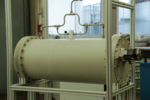
The objective of the PeePower™ BUGA 2023 collaborative research project is to produce green hydrogen and platform chemicals from wastewater. This fits in nicely with BUGA 2023’s (German National Garden Show) four major themes, namely, climate, energy, environment and food security.
https://www.biooekonomie-bw.de/en/articles/pm/peepower-energy-urine
-
-
Press release - 06/10/2022
Basic chemicals, which are needed as raw materials for a wide range of products such as medicines and detergents, can currently only be produced with an enormously high input of energy and raw materials. In many cases, fossil fuels and raw materials are still used. The extraction of chemical substances alone requires high temperatures, expensive catalysts made of precious metals and, in some cases, environmentally harmful starting materials.
https://www.biooekonomie-bw.de/en/articles/pm/neue-elektrolyseverfahren-fuer-eine-nachhaltige-chemische-produktion
-
-
Press release - 20/05/2022
The construction industry consumes large amounts of energy resources and produces tons of waste. At the Solar Decathlon Europe 21/22 university competition, students and researchers from KIT are eager to demonstrate that the building sector is already compatible with a functioning circular economy. The task of the interdisciplinary “RoofKIT” team is to convert previously unused roofs of buildings into usable spaces.
https://www.biooekonomie-bw.de/en/articles/pm/roofkit-how-build-recycling-oriented-and-sustainable-way
-
-
Press release - 02/08/2021
Carbon dioxide is one of the main drivers of climate change – which means that we need to reduce CO2 emissions in the future. Fraunhofer researchers are highlighting a possible way to lower these emissions: They use the greenhouse gas as a raw material, for instance to produce plastics. To do this, they first produce methanol and formic acid from CO2, which they convert via microorganisms into building blocks for polymers and the like.
https://www.biooekonomie-bw.de/en/articles/pm/co2-raw-material-plastics-and-other-products
-
Biosensors - 09/04/2020
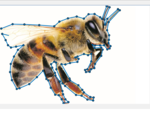
Sensor networks are one of the keys to achieving digitalisation of the bioeconomy. Sensor networks are on the way to becoming important analysis and control instruments for energy-efficient and sustainable material cycles. Dieter Hertweck, Professor of Business Information Systems at Reutlingen University of Applied Sciences, shows what is already possible in digital agriculture and waste recycling and what is feasible for the future.
https://www.biooekonomie-bw.de/en/articles/news/Sensors-for-the-bioeconomy
-
Dossier - 04/03/2019
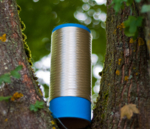
Baden-Württemberg is known for innovation in textiles and for playing a decisive role in the development of sustainable textiles for the future both in the clothing and the booming technical textile sectors. Companies and research institutes are focused on making the entire textile value chain from raw materials, production and useful life to disposal more sustainable than ever before.
https://www.biooekonomie-bw.de/en/articles/dossiers/sustainable-textiles
-
Website address: https://www.biooekonomie-bw.de/en/search
